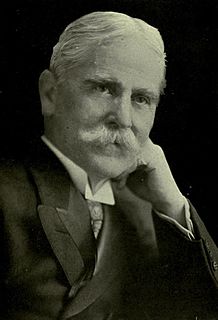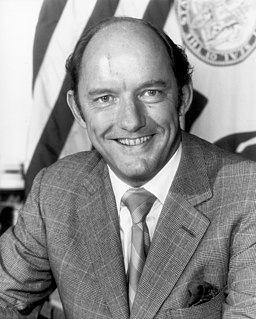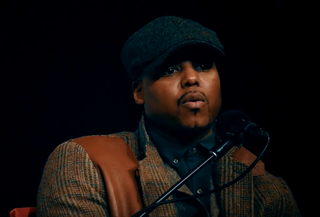A Quote by Henry Van Dyke
In the progress of personality, first comes a declaration of independence, then a recognition of interdependence.
Related Quotes
We should remember that the Declaration of Independence is not merely a historical document. It is an explicit recognition that our rights derive not from the King of England, not from the judiciary, not from government at all, but from God. The keystone of our system of popular sovereignty is the recognition, as the Declaration acknowledges, that 'all men are created equal' and 'endowed by their Creator with certain unalienable Rights.' Religion and God are no alien to our system of government, they're integral to it.
Is it not that in the chain of human events, the birthday of a nation is indissolubly linked with the birthday of the Savior? That it forms a leading event in the progress of the Gospel dispensation? Is it not that the Declaration of Independence first organized the social compact on the foundation of the Redeemer’s mission upon earth? That it laid the cornerstone of human government upon the first precepts of Christianity?
The Declaration of Independence was only partially applied for women and for certain immigrants such as the Chinese. And it wasn't applied to get rid of corporate welfare and cronyism. People who had special connections got special deals from the beginning. So all of those violations of what the Declaration of Independence expressed, have led to the problems we have today. So, the sins of the fathers are visited upon the sons for seven generations, or much longer. Forever.
The thing to remember about the Declaration of Independence and the profession of freedom is that it was written by people who were quite free and who were surrounded by people who were not free. The people who wrote the Declaration of Independence were ventriloquists really. The obsession with freedom makes no sense when it applies to them.
The inconsistency of the institution of domestic slavery with the principles of the Declaration of Independence was seen and lamented . . . no insincerity or hypocrisy can be fairly laid to their charge. Never from their lips was heard one syllable of attempt to justify the institution of slavery. They universally considered it as a reproach fastened upon them by the unnatural step-mother country and they saw that before the principles of the Declaration of Independence slavery, in common with every other mode of oppression, was destined sooner or later to be banished from the earth.
Congress actually authorized the printing and payment for a Bible. That illustrates the high regard that the Bible was held in early American society. We see biblical ideas woven into the founding documents of our country like the Declaration of Independence and the Constitution. The Declaration of Independence explicity states "that all men are created equal, that they are endowed by their Creator with certain unalienable Rights..." This is a biblical idea stemming from the dignity of all people - Psalm 139:14 - we are fearfully and wonderfully made.
All of depiction is fiction, it's only a question of degree. When we think of images, such as the signing of the declaration of independence, we think of that wonderful John Trumbull painting Declaration of Independence that is at the Yale Art Gallery and on the back of our money. When we think of that historical moment we think of that image. That image never happened like that. All of those people were never in that room together to sign that paper. It's a beautiful fiction to help us have an understanding of what went on.
Before the formation of this Constitution it had been affirmed as a self evident truth, in the Declaration of Independence, very deliberately made by the Representatives of the United States of America in Congress assembled that 'all men are created equal, and are endowed by their Creator with certain unalienable rights' This declaration of Independence was received and ratified by all the States in the Union & has never been disannuled. May we not from hence conclude, that the doctrine of Liberty and Equality is an article in the political creed of the United States.






































